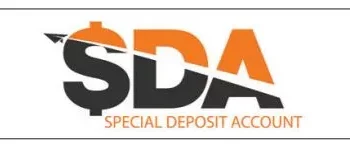
Nations Trust Bank continued to demonstrate its resilience in performance during the year. Despite the challenging business environment, the loan portfolio increased by 26 billion rupees, recording a 12 percent growth during the first six months of the year. While providing working capital loans under the “Saubagya” scheme introduced by the Government, the Bank disbursed over 19 billion rupees new credit facilities under its revival fund “Nations Diriya” scheme. This is dedicated to extending financial support to key industries, enabling such businesses to recommence and rebuild their business operations. Understanding the importance of assisting the adversely impacted businesses for their revival, the Bank also offered special payment relief schemes and repayment plans for existing borrowers and the Central Bank mandated moratorium schemes with lowinterest rates and restructured repayment plans for some of the identified industries. Nations Trust Bank raised USD 40 million from FMO, the Dutch Entrepreneurial Development Bank, and USD 25 million from International Finance Corporation during the first half of the year to support the Small and Medium Enterprise (SME) sector affected most by the pandemic. This would help towards the protection of livelihoods and the creation of new employment in the economy. The Bank also raised four billion, Fitch ‘A’ rated, Senior, Unsecured, Unlisted, Redeemable Debenture in July 2021, further strengthening the medium-term funding profile of the Bank. The group recorded a Profit Before Tax growth of 49 percent for the six months ended June 30, 2021, compared to the previous year, despite subdued economic conditions experienced during the second quarter. Net Interest Income continued to decline primarily due to the reduction in the market interest rates, while interest rate ceilings introduced by the regulator impacted some business portfolios.Supporting the loan growth and the economic recovery efforts, yields on loans reduced by 360bps. A net reduction in yields in the FIS portfolio also contributed to the decline in net interest income. The absence of a one-off interest reversal on moratoriums loans similar to what was recognized in the previous year helped negate the decline in interest income. However, the improvement in CASA ratio to 37 percent as of the end of June 2021 from 28 percent at the end of June 2020 helped partially offset the decline in interest margins during the period.
Gains on trading FX increased due to FX funding swaps due to a higher depreciation of the rupee during the current period in contrast to the depreciation during the same period last year. The Bank also benefited from trading profits on its fixed income securities portfolio with the fall in market rates. Suspension or refund of certain charges by the Bank, considering the current difficulties faced by customers due to the COVID-19 pandemic, negatively impacted the Bank’s fee-based income. Cards income declined because of a decrease in card spend due to changes in customer behavior patterns due to the restrictions in mobility and overseas travel. However, a positive trend could be seen in Trade Finance-related income with the increase in some Trade Finance-related activities. New underwriting standards and concentration on loan recoveries resulted in positive flows in the past due buckets while bringing the exposures down in most risk buckets, reflecting a 145bps reduction in the non-performing loan ratio. This is also evident in the decrease in impairment charges during the period. Nevertheless, the Bank ensured adequate impairment provisions by introducing changes to internal models to cover unexpected risk factors to reflect the current volatile environment and additional provisions made for the exposures to industries with elevated risks.
Containment of expense growth at two percent amidst the revenue growth at 22 percent is reflective of the cost management culture entrenched across the organization. Continuation of some of the costsaving strategies and initiatives executed last year and productivity, efficiency drives, and focus on some large cost pools were the main reasons for this favorable outcome. Cost to income ratio improved to 43.7 percent compared to 51.1 percent in the same period last year, demonstrating the Bank’s ability to considerably enhance efficiency and productivity through digitalization and new ways of working. The impact stemming from the income tax rate differential in income tax and deferred tax relating to the financial year ended December 31, 2020, has been reversed by 314 rupees and 103 million rupees, respectively, using the applicable new tax rate of 24 percent. As a result, the Profit after tax recorded a growth of 89 percent for the six months ended June 30, 2021. Before the exceptional tax adjustment, the Return on Equity stands at 16 percent for the period under review, compared to 11.73 percent recorded in 2020. The financial position of the Group remained strong as its Tier I Capital and Total Capital Adequacy ratios as of June 30, 2021, stood well above the regulatory levels at 13.46 percent and 16.4 percent, respectively. The Statutory Liquid Asset Ratio (SLAR) for the Domestic Banking Unit and the Off-Shore Banking Unit was at 34 percent and 26 percent, respectively.
Nations Trust Bank American Express Cardmembers can now enjoy benefits and privileges for a range of online and home delivery purchases. The Bank has partnered with a range of home delivery establishments as part of the #AMEX FROM HOME campaign to ensure that the Card members’ lives remain uninterrupted during the periods of movement restrictions. Despite these challenging times, the Bank remains committed to providing convenience and value to loyal Cardmembers and supporting merchant business partners to continue their businesses. The Bank also entered a strategic partnership with Paycorp International to launch innovative and safer payment capabilities, benefiting both Nations Trust Bank American Express merchant business partners, and Card members. As an authorized payment aggregator for Nations Trust Bank American Express, Diners Club and Discover Network card payments, Paycorp International supports the Bank’s merchant business partners to offer Card members a seamless online payment experience that is secure and encrypted. In its efforts to contribute towards the nation’s current requirements to fight the COVID-19 pandemic, NTB donated a portable ventilator to the Colombo South Teaching Hospital, Kalubowila. The Bank’s CSR activities continued to create ecological consciousness among the public by promoting conservation dialog and support publishing scientific research. NTB continued to host Nations WNPS wildlife lecture series and be the total sponsor of Loris and Warana/ Waranum magazines of WNPS.
Priyantha Talwatte, the CEO/ Director, stated, “With the nationwide vaccination program successfully being rolled out, there is the expectancy of a rapid return to economic normalcy. And Nations Trust Bank is fully geared to steer ahead more responsively to the external environment by prioritizing customer requirements supported by an extremely focused and involved Nations team who has demonstrated their agility to deliver value given the challenging environment. The Bank continues to implement its focused business strategy based on a K shape economic recovery. We are also committed to growing a healthy asset book and remain focused to delivering our strategic agenda set for the year – to strengthen our balance sheet and enhance digital capabilities with the ultimate intention of achieving customer convenience, cost and process efficiencies, pioneering innovation and thereby, challenging the norm to deliver an unparalleled banking experience to our customers in a new reality. The team at NTB will continue to create waves of opportunity and initiate positive change to rebuild and grow progressively. We’re focused on increasing the velocity of value to all our stakeholders now and in the years to come.” He stressed that the Bank would focus its funding on local manufacturing, pharmaceuticals, value-added agriculture, women-led businesses, and export-oriented businesses, which will generate the muchneeded foreign exchange flow into Sri Lanka.





